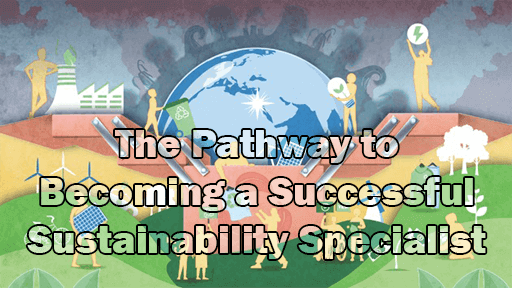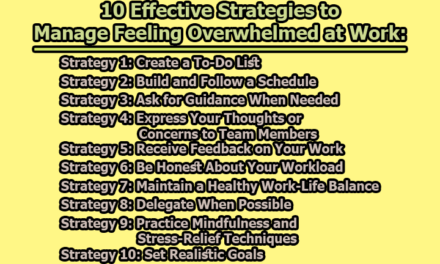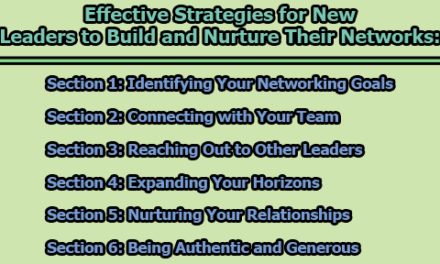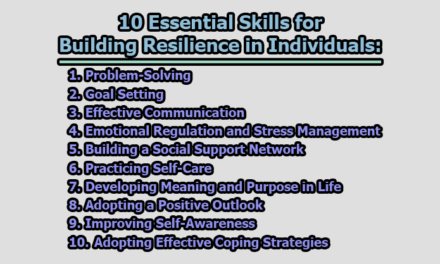The Pathway to Becoming a Successful Sustainability Specialist:
In an era defined by environmental challenges and a growing emphasis on corporate social responsibility, the role of sustainability specialists has become increasingly crucial. These professionals play a pivotal role in guiding organizations toward sustainable practices, ensuring that businesses operate with a focus on both environmental impact and social responsibility. This article explores the pathway to becoming a successful sustainability specialist, detailing the educational requirements, necessary skills, avenues for gaining experience, and the challenges and rewards associated with this impactful career.
Section 1: Understanding the Role of a Sustainability Specialist:
The role of sustainability specialists has emerged as a linchpin in fostering environmentally conscious and socially responsible practices within organizations. These professionals operate at the crossroads of business, environmental science, and social impact, taking on diverse responsibilities that extend far beyond the traditional confines of corporate operations.
1.1 The Multifaceted Responsibilities: At the core of a sustainability specialist’s role lies the intricate task of working collaboratively with a spectrum of stakeholders. These stakeholders include clients, employees, suppliers, regulators, and communities, creating a comprehensive approach to address the complex challenges of sustainability. The specialist’s primary mission is to assess the environmental and social impacts of an organization’s activities and to propose innovative solutions to mitigate and reduce these impacts.
A sustainability specialist might, for example, be tasked with helping a company minimize its carbon footprint by reducing greenhouse gas emissions. This could involve the implementation of energy-efficient technologies, advocating for renewable energy sources, or devising strategic plans for sustainable business practices. Similarly, they may focus on diminishing water consumption, curbing waste generation, or championing ethical sourcing, diversity, and human rights within the organization’s operations.
1.2 Beyond Proposals (Audits, Compliance, and Communication): The responsibilities extend beyond proposal and implementation phases. Sustainability specialists play a vital role in conducting audits to evaluate the effectiveness of implemented sustainability measures. These audits not only ensure compliance with relevant regulations but also provide valuable data for continuous improvement.
Monitoring and reporting on the progress of sustainability initiatives are equally crucial aspects of the role. Sustainability specialists compile comprehensive reports that communicate the environmental and social impacts of an organization’s activities, highlighting achievements and areas for improvement. Effective communication skills come to the forefront, as specialists need to convey complex data and strategies to both internal and external audiences.
1.3 Real-world Impact (Projects and Examples): To grasp the real-world impact of a sustainability specialist’s work, consider a scenario where a manufacturing company aims to reduce its waste generation. The sustainability specialist might conduct a thorough assessment of the current waste management practices, identifying areas for improvement. Through collaboration with internal teams, they may implement recycling programs, advocate for the use of sustainable packaging materials, and establish partnerships with waste management organizations.
In another instance, a technology firm might engage a sustainability specialist to address its energy consumption. Through the implementation of energy-efficient technologies, the specialist could guide the organization toward a more sustainable energy profile, simultaneously reducing operational costs and environmental impact.
1.4 Embracing Diversity in Sustainability Initiatives: The role of a sustainability specialist also extends to promoting diversity and inclusivity within sustainability initiatives. Recognizing that sustainability is a multidimensional concept, specialists work to ensure that their proposed solutions consider the social fabric of organizations. This involves advocating for equitable employment practices, promoting diversity in the workplace, and incorporating social justice considerations into sustainability strategies.
Section 2: Essential Skills for a Sustainability Specialist:
Becoming a successful sustainability specialist necessitates a unique skill set that blends technical expertise, analytical prowess, and effective interpersonal communication. As the linchpin between environmental sustainability and corporate practices, these professionals must possess a comprehensive set of competencies to navigate the complexities of their role.
2.1 Technical Proficiency:
- Environmental Sciences and Engineering: Sustainability specialists need a foundational understanding of environmental sciences and engineering principles. This includes knowledge of ecological systems, climate science, and sustainable engineering practices. Proficiency in these areas equips specialists to assess the environmental impact of organizational activities and propose effective mitigation strategies.
- Economics and Law: A grasp of economic principles and legal frameworks is crucial for sustainability specialists. This knowledge allows them to navigate the regulatory landscape and advocate for sustainable practices within the bounds of legal and economic constraints.
- Policy and Standards: Familiarity with global and regional sustainability policies and standards is paramount. Sustainability specialists should be well-versed in frameworks such as ISO 14001 (Environmental Management Systems) and have a deep understanding of how policy compliance aligns with organizational sustainability goals.
2.2 Analytical Acumen:
- Data Interpretation: The ability to collect, interpret, and analyze data is a cornerstone of the sustainability specialist’s role. This skill is essential for evaluating the impact of current practices, identifying areas for improvement, and measuring the success of sustainability initiatives over time.
- Risk Assessment: Sustainability specialists must be adept at identifying potential risks associated with environmental and social impacts. This skill allows them to proactively address challenges and design resilient sustainability strategies.
- Opportunity Identification: Beyond risk assessment, specialists need to identify opportunities for improvement. This includes recognizing areas where sustainable practices can lead to operational efficiencies, cost savings, or enhanced corporate reputation.
2.3 Interpersonal Communication
- Effective Communication: Sustainability specialists serve as liaisons between various stakeholders, necessitating effective communication skills. From presenting data to internal teams to negotiating with external partners, clear and persuasive communication is paramount.
- Collaboration and Teamwork: Sustainability is a collective effort that requires collaboration across departments and teams. Specialists must be skilled in fostering a collaborative culture, breaking down silos, and working towards shared sustainability goals.
- Stakeholder Engagement and Negotiation: Engaging with stakeholders, including clients, employees, and regulatory bodies, requires negotiation skills. Sustainability specialists must effectively communicate the benefits of sustainable practices and navigate diverse perspectives to garner support for initiatives.
- Change Management: The ability to influence and drive change within an organization is a hallmark of successful sustainability specialists. They must navigate organizational dynamics, overcome resistance to change, and inspire a commitment to sustainable practices at all levels.
Section 3: Educational Paths to Becoming a Sustainability Specialist:
Embarking on a journey to become a successful sustainability specialist involves navigating through various educational pathways. While there isn’t a one-size-fits-all formula, this section outlines the common routes and educational components that aspiring professionals can consider to build a solid foundation for a career in sustainability.
3.1 Foundational Degrees:
- Environmental Science: A bachelor’s degree in environmental science provides a comprehensive understanding of ecological systems, environmental impact assessment, and sustainable practices. Graduates gain the foundational knowledge required for assessing and mitigating the environmental impacts of organizational activities.
- Engineering: Degrees in environmental or sustainable engineering equip individuals with the technical skills needed to propose and implement sustainable solutions. This pathway is particularly relevant for those interested in the intersection of technology, innovation, and environmental sustainability.
- Management and Policy: Degrees in management or policy with a focus on sustainability offer a broader perspective. Students delve into the economic, legal, and policy dimensions of sustainability, preparing them for roles that involve navigating regulatory landscapes and advocating for sustainable practices within organizations.
3.2 Specialized Certifications and Credentials:
- ISSP Certification (International Society of Sustainability Professionals): The ISSP Certification is recognized globally and provides a standardized measure of sustainability proficiency. It covers a range of topics, including environmental and social impact assessment, sustainable business practices, and stakeholder engagement.
- AEE Certification (Association of Energy Engineers): AEE offers certifications in areas such as energy management and renewable energy. These certifications are valuable for sustainability specialists focusing on energy efficiency and clean energy initiatives.
- GRI Certification (Global Reporting Initiative): GRI offers certifications related to sustainability reporting. Professionals with GRI certifications are equipped to develop and implement robust sustainability reporting frameworks within organizations.
3.3 Continuous Learning and Skill Enhancement:
- Continuous Education Programs: The dynamic nature of sustainability requires professionals to stay updated on emerging trends and best practices. Continuous education programs, whether through workshops, seminars, or online courses, provide opportunities for skill enhancement in areas such as carbon accounting, life cycle assessment, and corporate social responsibility.
- Master’s Degrees in Sustainability: Pursuing a master’s degree in sustainability, environmental management, or a related field can deepen one’s expertise. These programs often include interdisciplinary coursework and research opportunities, preparing individuals for leadership roles in sustainability.
3.4 Integrating Practical Experience:
- Internships and Research Projects: Gaining hands-on experience through internships or research projects is invaluable. This allows individuals to apply theoretical knowledge in real-world scenarios, develop practical skills, and build a network within the sustainability community.
- Engagement with Professional Associations: Active involvement in professional associations, such as the ISSP, AEE, or GRI, provides opportunities for networking, mentorship, and staying informed about industry developments. Many of these associations also offer resources for continuous learning and career advancement.
Section 4: Gaining Practical Experience as a Sustainability Specialist:
While a solid educational foundation is crucial, practical experience is the key to honing the skills and knowledge needed to thrive as a sustainability specialist. This section explores various avenues for gaining hands-on experience, allowing aspiring professionals to bridge the gap between theory and real-world application.
4.1 Internships: Participating in sustainability-focused internships is a foundational step toward gaining practical experience. Internships provide exposure to the day-to-day operations of sustainability initiatives within organizations, offering opportunities to work on projects, engage with diverse teams, and witness the implementation of sustainable practices.
4.2 Volunteer Projects: Engaging in volunteer projects related to sustainability is another impactful way to gain hands-on experience. Joining community initiatives, environmental organizations, or social justice projects allows individuals to contribute to meaningful causes while developing practical skills in project management, stakeholder engagement, and impact assessment.
4.3 Extracurricular Activities: Active involvement in campus or community organizations dedicated to sustainability amplifies hands-on experience. Joining clubs, organizing events, or participating in sustainability-driven initiatives provides opportunities to apply theoretical knowledge in real-world settings, fostering a holistic understanding of sustainable practices.
4.4 Engaging with Current or Previous Employers: Professionals seeking a transition into sustainability can explore opportunities within their current or previous workplaces. Many organizations are increasingly recognizing the importance of integrating sustainability into their operations. By expressing interest and collaborating on sustainability projects, individuals can gain practical experience within familiar organizational settings.
4.5 Collaboration with External Organizations: Collaborating with external organizations or networks that share a commitment to sustainability is a valuable avenue for gaining diverse experiences. Partnerships with non-profits, environmental agencies, or research institutions provide exposure to different perspectives and challenges, enriching one’s understanding of sustainable practices.
4.6 Networking within the Sustainability Community: Active networking within the sustainability community opens doors to collaborative projects and mentorship opportunities. Attending conferences, seminars, and industry events provides a platform for connecting with professionals, learning about ongoing projects, and gaining insights into the latest trends and challenges in sustainability.
4.7 Contribution to Sustainability Publications or Blogs: Contributing to sustainability publications, blogs, or newsletters allows individuals to showcase their knowledge and perspectives. Writing articles, case studies, or whitepapers on relevant topics not only adds to one’s portfolio but also demonstrates a commitment to staying informed and engaged in the sustainability discourse.
4.8 Professional Development Programs: Participating in professional development programs, workshops, and seminars provides targeted learning experiences. Many organizations and educational institutions offer short-term programs focusing on specific aspects of sustainability, such as carbon accounting, sustainable supply chain management, or renewable energy.
4.9 Engagement with Professional Associations: Involvement in professional associations, such as the ISSP, AEE, or GRI, offers avenues for both learning and networking. These associations often organize events, webinars, and mentorship programs that facilitate interaction with seasoned professionals and provide insights into practical challenges within the field.
4.10 Research and Publications: Conducting independent research or contributing to published works in the field of sustainability enhances both practical skills and visibility. Publishing research findings, case studies, or contributing to industry journals showcases expertise and adds credibility to one’s professional profile.
Section 5: Finding Opportunities in the Growing Field of Sustainability:
As the demand for sustainability specialists continues to surge across various sectors, navigating the landscape to find and seize opportunities becomes crucial. This section outlines effective strategies for aspiring sustainability specialists to explore, ensuring they are well-positioned to step into the dynamic and rewarding field.
5.1 Networking with Professionals: Building a robust professional network is fundamental to discovering opportunities in sustainability. Attend industry events, conferences, and seminars to connect with professionals already established in the field. Engage in conversations, seek mentorship, and leverage these connections for insights into potential opportunities.
5.2 Professional Associations and Groups: Joining professional associations and groups dedicated to sustainability provides a platform for networking and staying informed about industry trends. Associations such as the ISSP, AEE, or GRI often host events, webinars, and forums where professionals can share experiences and learn about job opportunities.
5.3 Subscribing to Newsletters and Blogs: Staying informed about the latest developments in sustainability is crucial. Subscribe to newsletters and blogs from reputable sources like GreenBiz, TriplePundit, or CSRwire. These platforms not only provide valuable insights but also share job postings and updates on sustainability-related opportunities.
5.4 Utilizing Job Boards and Websites: Job boards and websites dedicated to sustainability, such as Indeed, Glassdoor, or SustainabilityJobs, are invaluable resources for job seekers. Regularly monitoring these platforms ensures access to the latest job postings and opportunities across diverse sectors.
5.5 Creating a Professional Profile: Establishing a strong online presence through platforms like LinkedIn, Behance, or Carbonbase is essential. A well-curated professional profile not only showcases qualifications, skills, and experiences but also allows professionals to connect with recruiters and industry peers.
5.6 Joining Online Platforms: Participating in online platforms specific to sustainability, such as forums or communities on LinkedIn, provides additional networking opportunities. Engaging in discussions, sharing insights, and connecting with professionals in these online spaces can lead to potential job opportunities.
5.7 Utilizing Industry-Specific Platforms: Exploring platforms specific to sustainability professionals, such as Sustainable Brands or the Sustainable Business Network, can provide targeted job listings and networking opportunities within the sustainability community.
5.8 Creating a Portfolio: For those with tangible projects or case studies, creating a portfolio or showcasing work on platforms like Behance can be impactful. A well-documented portfolio not only highlights skills and achievements but also serves as a visual representation of one’s commitment to sustainability.
5.9 Attending Career Fairs: Participating in career fairs focused on sustainability or related fields is an excellent way to interact directly with potential employers. These events often provide opportunities for on-the-spot interviews and facilitate connections with organizations committed to sustainability initiatives.
5.10 Seeking Internal Opportunities: For individuals already employed, exploring sustainability initiatives within their current organizations can be a viable path. Many companies are establishing dedicated sustainability roles, and expressing interest in contributing to such initiatives can open doors to internal opportunities.
Section 6: Benefits and Challenges of Being a Sustainability Specialist:
Embarking on a career as a sustainability specialist offers a unique blend of rewards and challenges. Understanding both aspects is crucial for individuals aspiring to make a positive impact in the dynamic field of sustainability. This section explores the inherent benefits and challenges that come with being a sustainability specialist.
6.1 Benefits:
- Contribution to Positive Change: One of the most rewarding aspects of being a sustainability specialist is the opportunity to contribute to positive change. Sustainability specialists play a pivotal role in guiding organizations toward environmentally conscious and socially responsible practices, fostering a sense of purpose and accomplishment.
- Diverse and Impactful Projects: Sustainability specialists often engage in a variety of projects, each presenting unique challenges and opportunities. From reducing carbon footprints to promoting ethical sourcing, the diversity of tasks keeps the role dynamic and intellectually stimulating.
- Collaboration with Passionate Individuals: Working in the field of sustainability allows specialists to collaborate with like-minded and passionate individuals. This shared commitment to creating a more sustainable future fosters a sense of community and camaraderie within the profession.
- Continuous Learning and Skill Development: Sustainability is a constantly evolving field, necessitating continuous learning. As a sustainability specialist, individuals have the opportunity to stay at the forefront of industry trends, enhancing their skills and knowledge in response to emerging challenges.
- Positive Organizational Impact: Implementing sustainability initiatives can lead to positive impacts within organizations, including cost savings, enhanced reputation, and improved relationships with stakeholders. Sustainability specialists play a pivotal role in driving these positive organizational changes.
- Global Relevance and Impact: The work of sustainability specialists extends beyond organizational boundaries, contributing to global efforts to address climate change, biodiversity loss, and social inequality. This global relevance provides a broader context for the impact of their work.
6.2 Challenges:
- Resistance and Skepticism: Implementing sustainability initiatives may encounter resistance or skepticism from various stakeholders, including internal teams, executives, or external partners. Overcoming this resistance requires effective communication and negotiation skills.
- Complex and Uncertain Situations: Sustainability specialists often deal with complex and uncertain situations, navigating the intricacies of environmental regulations, social dynamics, and economic considerations. Adapting to rapidly changing circumstances is a constant challenge.
- High Expectations and Deadlines: The urgency of addressing environmental and social issues places high expectations on sustainability specialists. Meeting tight deadlines while ensuring the quality and effectiveness of sustainability initiatives can be demanding.
- Balancing Multiple Objectives: Sustainability specialists must balance multiple objectives, considering environmental impact, economic feasibility, and social considerations. Striking the right balance requires strategic thinking and a holistic approach to problem-solving.
- Navigating Organizational Dynamics: Organizations vary in their commitment to sustainability, and specialists may encounter challenges in navigating internal politics and conflicting priorities. Building consensus and aligning diverse perspectives becomes essential.
- Continuous Learning Curve: The ever-evolving nature of sustainability means that specialists face a continuous learning curve. Staying updated on new technologies, regulations, and best practices demands a commitment to ongoing professional development.
In conclusion, becoming a successful sustainability specialist is a rewarding journey that requires a combination of education, skills, and practical experience. As the demand for sustainability specialists continues to grow, individuals passionate about making a positive impact on the environment and society can embark on this fulfilling career path. By understanding the role, developing essential skills, pursuing relevant education, gaining practical experience, and actively seeking opportunities, aspiring sustainability specialists can contribute meaningfully to a more sustainable and responsible future.

Library Lecturer at Nurul Amin Degree College










